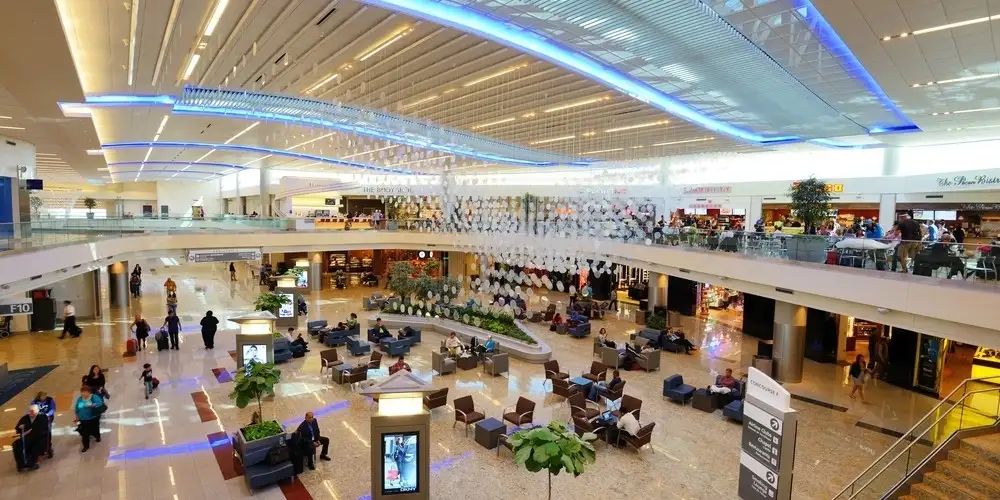
Which airline dominates your airport?
If your hometown airport is among 40 of the country’s 100 largest, it is dominated by a single carrier, according to an Associated Press analysis. And at 93 of the top-100 airports, just one or two airlines control a majority of the seats.
The situation falls short of reaching monopoly or duopoly status, but only just. It’s as though the airlines had agreed to carve up the domestic route networks among themselves, allowing Airline A to dominate this market, Airline B that market, and so on. The agreed-to lack of competition results in higher airfares for consumers and higher profits overall for the airlines themselves. Of course, such agreements can’t actually be entered into: That would be collusion.
However the current state of affairs came about—and industry consolidation undoubtedly played a big part—it is a reality faced by a majority of U.S. air travelers. Examples:
- At Philadelphia airport, American now controls 77 percent of the seats. Ticket prices are 10 percent higher than the national average.
- At Atlanta, Delta controls over 80 percent of the seats, and airfares are 11 percent higher than average.
And on the flip side, further underscoring the price effect of airport dominance:
- At Denver, where United’s seat share dropped from 56 to 41 percent, airfares reversed course, from 6 percent above to almost 15 percent below the national average.
- And at Seattle airport, where Delta has recently mounted an aggressive challenge to Alaska Airlines’ dominance, airfares dropped to $377 in the third quarter of last year, $18 below the average.
So, your hometown airport is monopolized… I mean dominated… by one carrier, two if you’re lucky. There’s no reason to expect the situation to change anytime soon. On the contrary, the consolidation is likely to intensify. What to do to minimize the pain and expense?
To Win, Capitulate
Go with the flow.
If you live in the Atlanta area, for example, make Delta your go-to carrier. Join SkyMiles. Sign up for the program-affiliated credit card. Familiarize yourself with the SkyTeam network of airlines, both for earning and redemption opportunities.
You don’t have to like Delta, although the airline has been running a very tight ship, operationally. And you’re even less likely to love SkyMiles, which has lately evolved into one of the least generous of the U.S. loyalty programs, for all but the most frequent, big-spending flyers.
Liking or disliking is beside the point. If you fly enough to care, Delta should be your first choice simply because it’s most likely to offer the most timing and routing options for any trips you take from Atlanta. And as always, by focusing on a single carrier, you’ll earn the most useable frequent-flyer miles, and possibly elite status as well.
The same applies to American in Dallas, to United in Newark, and to the dominant carriers in many major markets.
Casting their lot with the local Goliath may run against many consumers’ sense of competitive fairness. But in the end, in an increasingly rigged game, capitulation may be the winning strategy.
Reader Reality Check
Who’s your daddy?
This article originally appeared on FrequentFlier.com.
We hand-pick everything we recommend and select items through testing and reviews. Some products are sent to us free of charge with no incentive to offer a favorable review. We offer our unbiased opinions and do not accept compensation to review products. All items are in stock and prices are accurate at the time of publication. If you buy something through our links, we may earn a commission.
Related
Top Fares From
Today's Top Travel Deals
Brought to you by ShermansTravel
Porto to Lisbon: 7-Nt, Small-Group Portugal...
Indus Travels
 vacation
$1899+
vacation
$1899+
Greenland: Luxe, All-Incl. 11-Nt Exploration Small-Ship...
Swan Hellenic



Ohio: Daily Car Rentals from Cincinnati
85OFF.com





